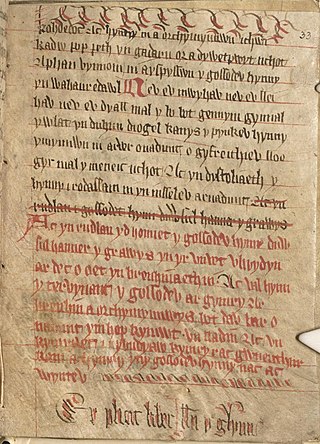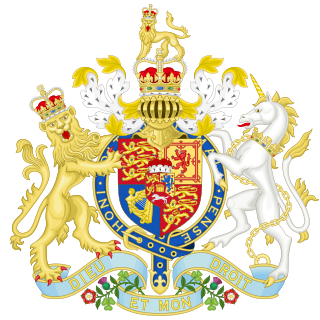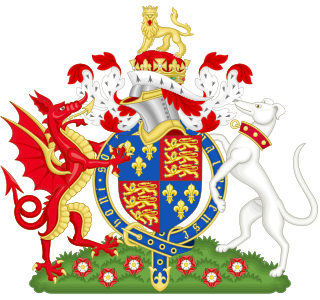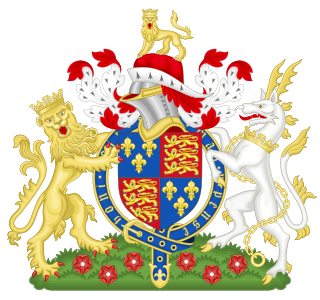
The Statute of Rhuddlan, also known as the Statutes of Wales or as the Statute of Wales, provided the constitutional basis for the government of the Principality of Wales from 1284 until 1536. The statute introduced English common law to Wales, but also permitted the continuance of Welsh legal practices within the Principality. The statute also divided Wales into administrations of government via shires which were essentially provinces of the English crown. Prior to the statute, the Welsh principalities were ruled by Welsh law and the native Princes of Wales, the last prince to rule the whole Principality being Llywelyn ap Gruffudd, killed in an ambush by the English in 1282.
Statutes at Large is the name given to published collections or series of legislative Acts in a number of jurisdictions.
The Mutiny Acts were an almost 200-year series of annual Acts passed by the Parliament of England, the Parliament of Great Britain, and the Parliament of the United Kingdom for governing, regulating, provisioning, and funding the English and later British Army.

The Piracy Act 1717, sometimes called the Transportation Act 1717, was an Act of the Parliament of Great Britain that established a regulated, bonded system to transport criminals to colonies in North America for indentured service, as a punishment for those convicted or attainted in Great Britain, excluding Scotland. The Act established a seven-year transportation sentence as a punishment for people convicted of lesser felonies, and a fourteen-year sentence for more serious crimes, in lieu of capital punishment. Completion of the sentence had the effect of a pardon; the punishment for returning before completion was death. An estimated 50,000 convicts were transported to the British American colonies.

The Habeas Corpus Suspension Act 1745 was an Act of Parliament of the Parliament of Great Britain passed on 18 October 1745, and formally repealed in 1867. It made various provisions for arresting and imprisoning those suspected of treason during the Second Jacobite Rising. The Act was continued in force by a second Act of the same title and by a third act the next year before expiring.

The Treason Act 1554 was an Act of the Parliament of England. It is not to be confused with two other Acts about treason passed in the same year, 1 & 2 Ph & M c 9 and 11.

The Treason Act 1746 was an Act of the Parliament of Great Britain. The long title is "An Act for allowing Persons impeached of High Treason, whereby any Corruption of Blood may be made, or for Misprision of such Treason, to make their full Defence by Council."

The Religion Act 1580 was an Act of the Parliament of England during the English Reformation.

The Treason Act 1547 was an Act of the Parliament of England. It is mainly notable for being the first instance of the rule that two witnesses are needed to prove a charge of treason, a rule which still exists today in the United States Constitution.

The Benefit of Clergy Act 1496, formally referred to as the Act 12 Hen. 7 c.7, was an Act of the Parliament of England, passed during the reign of Henry VII of England. Its long title was "An Act to make some Offences Petty Treason." It abolished benefit of clergy for petty treason.

The Treason Act 1397 was an Act of the Parliament of England. It was supplemented by six other Acts. The seven Acts together dealt with high treason.

The Safe Conducts Act 1414 was an Act of the Parliament of England. It made it high treason to break a truce or promise of safe conduct by killing, robbing or "spoiling" the victim. Unusually, the "voluntary receipt" or "concealing" of people who had violated this Act was also stated to be treason.

The Habeas Corpus Suspension Act 1794 was an Act passed by the British Parliament. The Act's long title was An act to empower his Majesty to secure and detain such persons as his Majesty shall suspect are conspiring against his person and government.

The Treason Act 1743 was an Act of the Parliament of Great Britain which made it high treason to correspond with any of the sons of James Francis Edward Stuart, who claimed to be king of Great Britain and of Ireland. His sons were Charles Edward Stuart and Henry Benedict Stuart.

The Sheriffs (Scotland) Act 1747 was an Act of the Parliament of Great Britain which applied only to Scotland. It stated that anyone who was prosecuted on or after 1 April 1748 for treason or misprision of treason could be tried anywhere in Scotland if the crime had been committed in any of the shires of Dunbartain, Stirling, Perth, Kincardine, Aberdeen, Inverness, Nairn, Cromarty, Argyll, Forfarshire, Banff, Sutherland, Caithness, Elgine, Ross, and Orkney. Normally a crime had to be tried in the shire where it had been committed. The Act also said that in such a trial, the jurors could come from adjoining counties, instead of the county where the trial was held.

The Poisoning Act 1530 was an Act of the Parliament of England. Its long title was "An Act for Poisoning." It made it high treason to murder someone with poison, and instead of the usual punishment for treason it imposed death by boiling. It was repealed by the Treason Act 1547.
The Correspondence with Enemies Act 1793 was an Act of the British Parliament passed at the beginning of the French Revolutionary Wars. France had declared war on Great Britain on 1 February; the Act was passed on 7 May to prohibit trade between the countries.

The Habeas Corpus Suspension Acts of 1688 were three Acts of the Parliament of England which temporarily suspended the right of habeas corpus in England until 17 April, 25 May and 23 October 1689 respectively. They were passed in the wake of the Glorious Revolution, in which King James II had recently been deposed.











